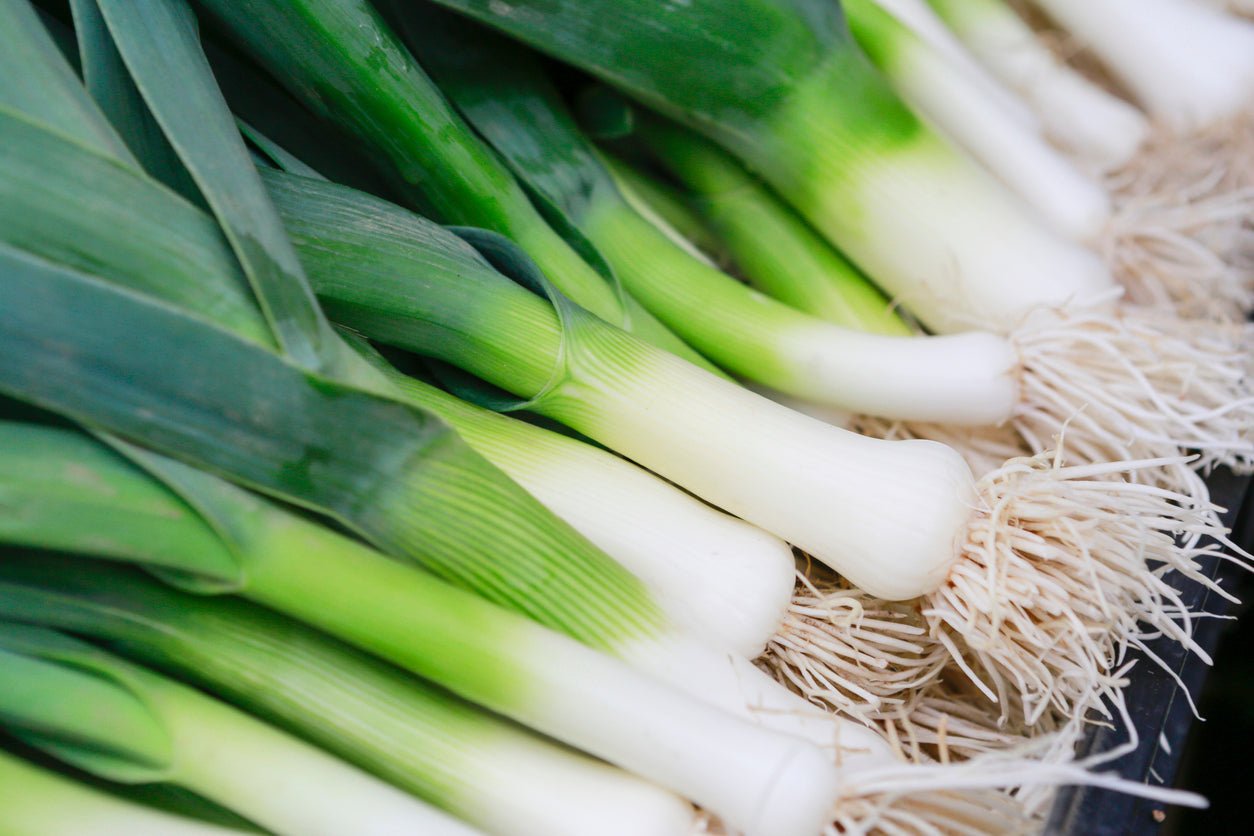Walk on the mild side: Onion’s gentler “cousins” offer potent health benefits

Featuring bold flavors, mouth-watering aromas, and a “deep bench” of nutrients and antioxidants, onion and garlic are valued by cooks for their ability to enhance recipes - and revered by natural healers for their health-promoting properties. But maybe it’s time to allow their milder-tasting relatives - shallots, chives, and leeks - to share the spotlight.
Like onions and garlic, these tasty herbs are members of the allium vegetable family and offer similar health benefits. In addition, their delicate, more restrained flavors can make them a great alternative to the more pungent onion and garlic. So let’s look at some important ways these piquant veggies can benefit health and well-being. (You may be pleasantly surprised!)
Shallots may help you “breathe easier”
Shallots, botanically known as Allium ascalonicum, contain two primary antioxidant compounds - quercetin and allicin - found in onion and garlic. And both offer health benefits. Researchers have been impressed by the ability of quercetin, a natural antihistamine, to reduce symptoms of allergies, asthma, and bronchitis. A new study published in the Asian Pacific Journal of Allergy and Immunology revealed that a quercetin-rich shallot extract - when administered along with the allergy drug cetirizine - reduced seasonal allergy symptoms in 62.5 percent of the volunteers - almost twice the “success rate” seen in participants receiving cetirizine alone!
As for allicin, it benefits the circulatory system by increasing the flexibility of arteries and promoting the release of blood pressure-lowering nitric oxide. Heart-healthy allicin in shallots is also believed to help prevent the formation of dangerous blood clots, lower harmful LDL cholesterol, and reduce fats in the blood. One more “plus” for shallots: Although they feature a milder, sweeter taste than onions, they are a more concentrated source of micronutrients, offering healthy amounts of calcium, magnesium, iron, phosphorus, potassium, and zinc. For good measure, B vitamins and the antioxidant vitamins A and C are found in shallots as well.
Prebiotic leeks offer anti-inflammatory benefits
Leeks, botanically known as Allium porrum, are high in beta-carotene. The body converts this natural plant pigment to vitamin A, which is needed for vision and immune system function. Leeks also contain vitamin K1 - essential for bone health - and antioxidant vitamin C, which helps produce the collagen necessary for healthy arteries. Where leeks really “slay,” however, is in their content of antioxidant polyphenols. Researchers have found that they have a polyphenol content of 33 mg per 100 grams - much higher than that of carrots, at 10 mg, and red peppers, at 25 mg.
When it comes to neutralizing harmful free radicals that can contribute to cancer and heart disease - leeks mean business. Like shallots, leeks are rich in allicin and quercetin. They also contain kaempferol, an antioxidant and anti-inflammatory flavonoid believed to have anticancer effects. (Eating a diet high in leeks and other allium vegetables has been linked with reduced rates of gastric and colorectal cancers).
Finally, leeks are a prebiotic food, providing fuel for beneficial gut microbiome bacteria. These bacteria then “return the favor” by producing short-chain fatty acids - such as butyrate - that reduce inflammation. This assortment of benefits makes leeks a wise dietary choice for promoting heart and digestive health.
Nutrient-packed chives help cleanse and detoxify
Last but not least, chives - botanically known as Allium schoenoprasum - offer diverse health benefits. Like their cousins, shallots, and leeks, chives are high in allicin, quercetin, and vitamin K. In addition, they have diuretic properties that can help rid the body of toxins and excess salt. And they assist in producing glutathione, the body’s most crucial detoxifying enzyme. Chives are also a great food to promote bone health, as they help produce osteocalcin, a cofactor needed for good bone density.
As if this weren’t impressive enough, chives contain folate - a B vitamin that can reduce the risk of stroke and prevent neural tube defects in newborns - and antioxidant vitamin C, which boosts the immune system. Generous amounts of lutein and zeaxanthin - a pair of plant pigments believed to help prevent age-related macular degeneration - round out the impressive menu of health benefits from chives.
Use shallots, leeks, and chives as you would onions and garlic
You can use these versatile, tasty veggies in various ways to add spice and savor to meals.
Add raw minced shallots to salad dressings, sauces, and marinades. Or incorporate them into meat and vegetable skewers for grilling. You can also employ them to perk up omelets and quiches.
To prepare leeks, discard the dark green sheaths at the top, then slice the white base and stem. Chopped leeks can be added to casseroles, sauces, and soups. Hint: Leeks are particularly appealing when sauteed with a little garlic in olive oil. Sprinkle with parmesan cheese, then enjoy. (Combine with mushrooms, carrots, zucchini, or spinach, if desired).
Chop the hollow green stems to the desired size to prepare chives. This elegant seasoning can flavor hummus, dips, and salsa - or as a traditional topping for baked potatoes. Incidentally, the flavor of chives is particularly well-suited to accenting mildly-flavored fish such as flounder or tilapia.
Maybe it’s time for shallots, leeks, and chives to stop living in the shadow of their more robust-tasting relatives. Undoubtedly, they have a fantastic variety of health-sustaining benefits to share.
Sources for this article include:
-
Posted in
allium vegetables, benefits of shallots, chives, heart disease, leeks, quercetin






